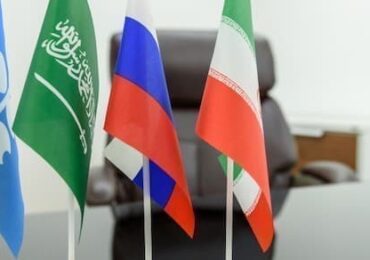
Japan has raised concerns on Monday as it experiences a surge of “extremely regrettable” harassment phone calls, which are suspected to originate from China. These incidents have followed the recent release of treated radioactive water from the Fukushima nuclear power plant into the Pacific Ocean.
In response, the Chinese embassy in Tokyo has acknowledged receiving similar nuisance calls from Japan, escalating tensions between the two nations.
The discharge of water containing treated radioactive elements from the Fukushima facility began last Thursday, marking a significant phase in the decommissioning process of the plant. This move comes after the plant suffered severe meltdowns in the aftermath of a devastating tsunami in 2011, making it the worst nuclear disaster since the Chernobyl incident 25 years earlier.
Japan’s Chief Cabinet Secretary, Hirokazu Matsuno, expressed his concern during a routine press briefing, stating, “A significant number of harassment phone calls believed to be originating from China have been reported in Japan… These developments are deeply regrettable.” In light of these calls, Japan’s vice foreign minister, Masataka Okano, summoned the Chinese ambassador to address the matter.
The Chinese Ministry of Foreign Affairs responded by claiming that it was not aware of the situation during its regular press conference. However, the Chinese embassy in Tokyo issued a statement confirming that they had lodged formal complaints with Japan regarding the incessant nuisance calls targeting their embassy and consulates. The embassy’s ambassador, Wu Jianghao, expressed that these calls had severely disrupted the embassy’s regular operations and described them as “serious interference.”
Meanwhile, the harassment has not been limited to phone calls. Reports have emerged of stone-throwing incidents at a Japanese school and embassy in China. Prime Minister Fumio Kishida revealed that the Japanese government had firmly urged Beijing to encourage its citizens to act responsibly and maintain calm. These actions came after a series of incidents raised concerns about the safety of Japanese citizens and institutions in China.
Fukushima city hall has been inundated with harassment calls since the start of the discharge, with over 200 such calls flooding the lines within a single day. Local schools in the region also reported similar incidents. These callers have voiced their concerns about the release of radioactive water into the Pacific, demanding explanations for Japan’s actions.
Moreover, other Japanese facilities, such as municipalities, hotels, and restaurants, have also reported receiving harassment calls with the country code +86, indicating that they likely originate from China.
The situation has prompted Japanese authorities to intervene, with some companies reporting these incidents to the police. In response to questions about the harassment and the incident in Qingdao, Chinese foreign ministry spokesman Wang Wenbin assured that China prioritizes the safety and lawful rights of foreign nationals within its borders.
The Fukushima plant operator, Tokyo Electric Power (Tepco), has been carefully filtering contaminated water to remove harmful isotopes, leaving behind only tritium, a radioactive isotope of hydrogen that is difficult to separate. This procedure has raised concerns in China, prompting the country to impose a blanket ban on aquatic products from Japan, citing concerns about the safety of the released water.
As tensions rise between the two nations, international observers are watching closely to see how the situation develops and how diplomatic efforts will be utilized to address these concerns.
Disclaimer: The views, suggestions, and opinions expressed here are the sole responsibility of the experts. No Info Streamline journalist was involved in the writing and production of this article.



